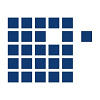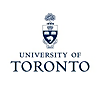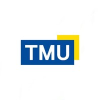The University of Toronto seeks a strategic and collaborative leader for the role of Executive Director, University Procurement .
Reporting to the Chief Financial Officer, the Executive Director (ED) plays a critical leadership role in the effective delivery of procurement activities within a large, highly complex and decentralized organization.
Based on an expert knowledge of modern procurement practice, the ED will : develop, implement, and oversee institutional procurement strategies, policies and systems that align with the university’s vision, goals and strategic objectives;
ensure compliance with broader public sector procurement regulations; and leverage data, technology, and the university’s purchasing power to drive cost efficiencies for the university community.
Working in an evolving environment where collaboration is a key success factor, the ED partners internally with senior management, legal counsel, faculty and departmental users, and specialized purchasing units, as well as externally with suppliers, provincial and federal government agencies, and the broader public sector procurement community.
The ED oversees the staff of the university’s procurement services department, directing the work of the unit to deliver on a vision to be innovative and solutions-focused financial stewards, partnering with the university community to support world-leading research and learning.
With a university degree in business supported with a Public Procurement certification (or equivalent combination of education and experience), the ideal candidate possesses progressive leadership experience in public sector procurement, and a proven track record of managing and motivating effective teams in a complex, unionized environment.
Knowledge of Ontario standards and laws governing procurement, and procurement trends and developments in the private and public sectors is a significant asset.
The Executive Director brings strong business acumen and must demonstrate expertise in project management, problem-solving, process improvement, and navigating complex situations with diplomacy and tact.
They will possess exceptional interpersonal skills and the ability to build consensus, foster cooperation, and drive compliance through effective negotiation and relationship building.
Established by royal charter in 1827, the University of Toronto is consistently ranked among the world’s top universities.
Located in Toronto Canada’s largest city the university encompasses 18 Faculties and Schools, more than 100 departments, and 170 research centres and institutes.
Its teaching programs are delivered on the historic St. George campus in the heart of Toronto’s downtown, on campuses in Mississauga and Scarborough, and in nine fully affiliated teaching hospitals.
With more than 25,000 faculty and staff, 97,000 students of which 30% are international, and an annual operating budget exceeding $3.
5 billion, the university is one of the world’s largest publicly funded research-intensive universities and contributes more than $15 billion to the Canadian economy each year.
The University of Toronto embraces diversity and is building a culture of belonging that increases our capacity to effectively address and serve the interests of our global community.
We strongly encourage applications from Indigenous Peoples, Black and racialized persons, women, persons with disabilities, and people of diverse sexual and gender identities.
We value applicants who have demonstrated a commitment to equity, diversity and inclusion and recognize that diverse perspectives, experiences, and expertise are essential to strengthening our academic mission.
In accordance with the AODA Act, accommodation will be provided to individuals with disabilities throughout the recruitment process.
Odgers Berndtson is deeply committed to diversity, equity and inclusion in all our work, and encourages you to take a moment and access our



